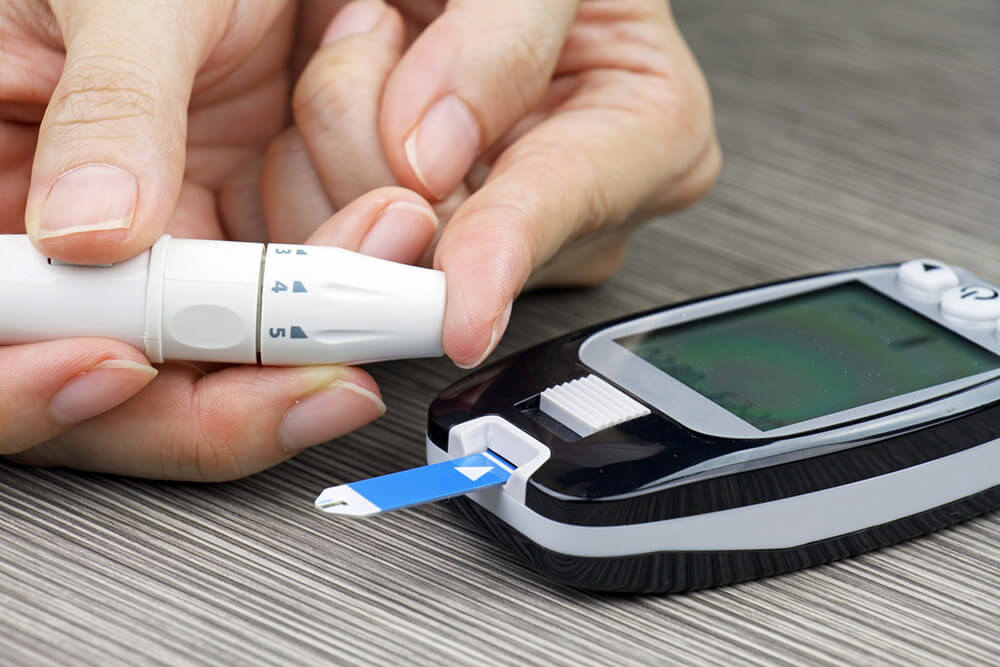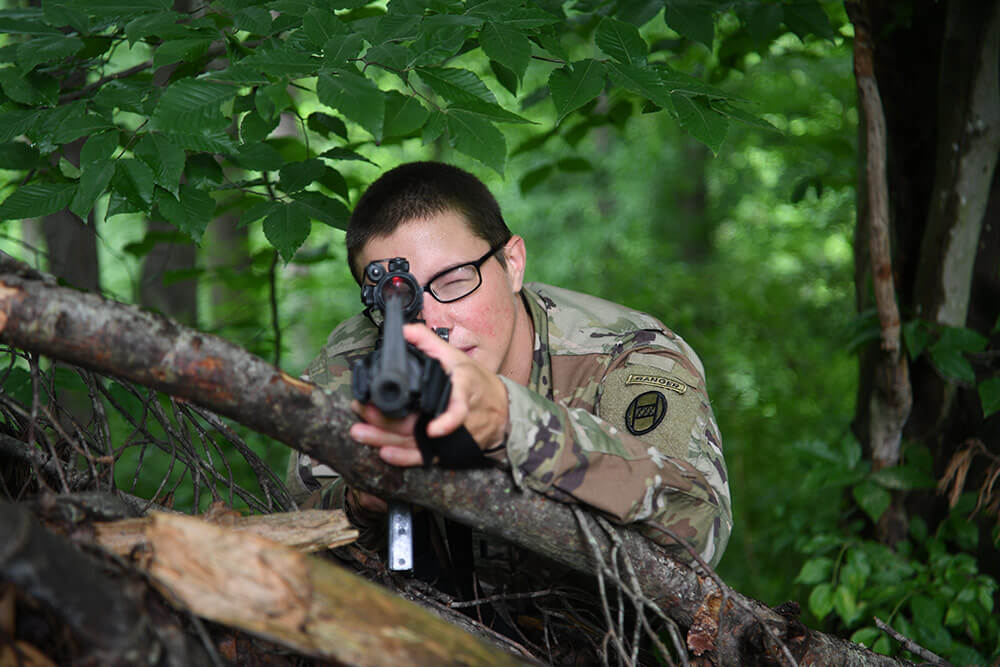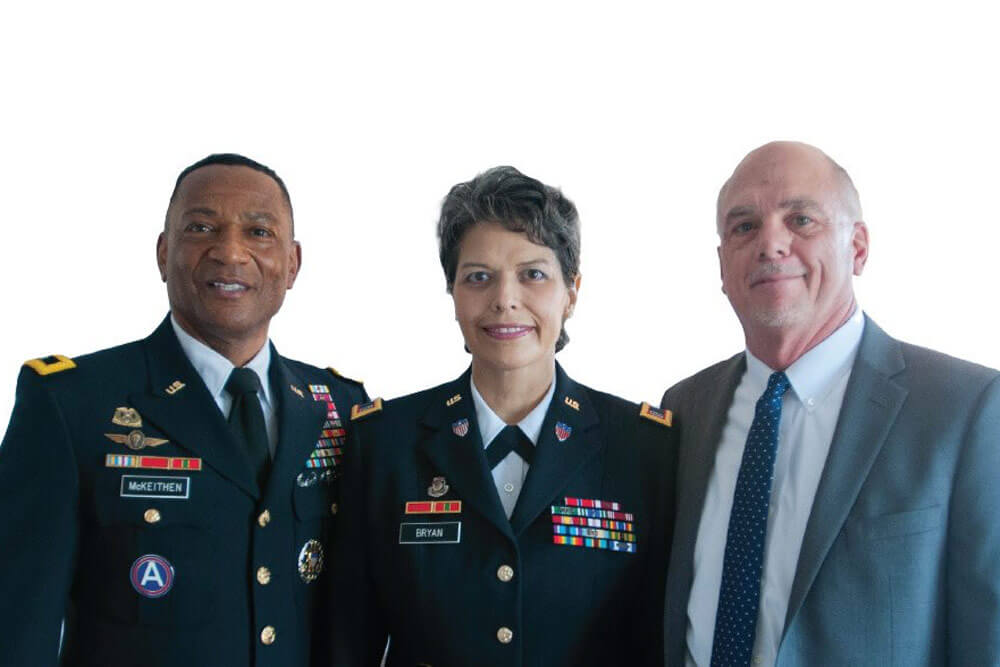“PT Hall reporting to the President of the Board as ordered, Sir!” This was part of the etiquette I had to follow when standing before the Physical Evaluation Board (PEB) in early 2018, as I fought for my career.
In early 2017, after taking a routine Periodic Health Assessment (PHA) exam, my blood sugar and A1C levels were found to be astronomically high. So high, in fact, that not only did my primary care provider at the Department of Veterans Affairs’ (VA) Meharry Clinic sit down with me for a serious talk, the matter also went before the State levels of Army Medical Command. The gravity of the situation truly dawned on me when I was handed a glucometer. I was now battling diabetes.

When my father died a few years ago, I did not inherit a wealthy estate. What I did inherit for sure was the family tendency towards diabetes, which he inherited from his father before him. The Tennessee Army National Guard was beginning to move towards involuntary separation, as displaying anything over 7.0 on an A1C test is grounds for separation. Though the National Guard is in great need of adding numbers to its ranks, greater is the need to ensure the Soldiers that make up those ranks, regardless of MOS, are physically and mentally fit and deployable. I love my job as a military Chaplain, and I had to fight to continue to do what I love. I owed it to myself, my Family, my Soldiers and my God to finish strong rather than be medical-evaluation-board’ed out early.
I had to make a radical change in my diet. No more eating like a teenager (especially at a half century old). In addition to cutting out sweets (and I have always had quite a sweet tooth), I also had to reduce my carbohydrates. No more large amounts of pastas or breads. No more consuming an entire meal-ready-to-eat (MRE) in one day. I was also advised to eliminate processed foods. Meat is a major source of protein, and for me, is certainly acceptable as long as it “swam, crawled or flew.” However, there is no such animal as a bologna. I also had to visit the gym more frequently. A mixture of cardio and upper body exercise helped take down the weight, which in turn brought my blood sugar down to a more reasonable level. Reducing weight is crucial in controlling blood sugar. In addition to all this, I followed the Army cliché of, “drink water.” Within one year, I brought my A1C from a level over 11.5 down to a 6.4 reading.

I am also blessed with a loving wife and a knowledgeable mother who have kept me accountable. Further encouragement came from members of my church who understand diabetes; they have given me encouragement and support as did my Endorsing Agent, retired CH(LTC) Bob Collins. I also found that as I increased my time of fellowship with them, my stress levels and blood sugar went further down.
Even with the work of diet reform, increased physical training (PT) and community support under my belt, I still had to prove that I was fit to remain in the military and that I was deployable. After a couple of “bad news” letters from the State Medical Review Board, I opted to go full blast: appeal my case to the Fort Sam Houston PEB, appear in San Antonio, Texas, in person and receive an appointed representative.

Weeks before I arrived in Texas, my representative contacted me. I was blessed to have Sharon Ackah, who is very knowledgeable in her field and whose advice was quite valuable, working with me. We gathered documents and evidence, which Ackah assembled into a well-organized case for presentation to the board. I went through the ritual of knocking and entering when executing the Army etiquette in the presence of a colonel, a major and a retired Army doctor.
We had in our favor the fact that firearms and explosives are not an issue for me, as I am a Chaplain and I am not allowed to touch any weaponry. In just a short time, the PEB reviewed my case and declared me fit and deployable. I can say, “Praise the Lord!” However, I know that while the battle was won that day in Texas, the war rages on. In order to stay in service, I must maintain the elements that contributed to my successfully lowering my A1C down below 7.0.

I want to get the word out to other service members that you do not want to go through the toil and emotional stress that I endured. If you (or a buddy you know) have a family history of blood sugar problems, I have some tips to help nip it in the bud before a PHA shows you as diabetic/hypoglycemic, forcing you to face the possibility of involuntary separation.

I certainly don’t want to see other service members go through the tribulation I went through. Even though I was victorious in the end, the stress and jeopardy were real. While the bad news is that diabetes can be a career ender, the good news is that we can work to prevent it, fight it, overcome it and continue on to a fulfilling career in the Service.
By Contributing Writer CH (CPT) J. Randolph Hall


